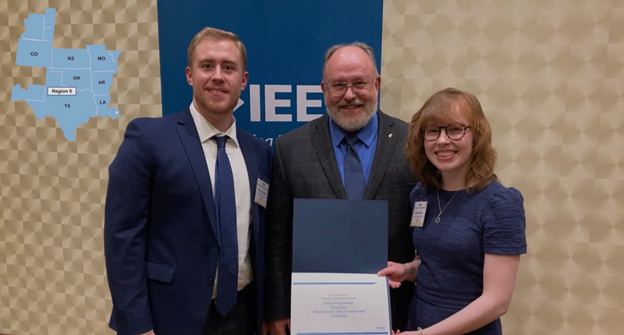Generative AI technology is increasingly shaping the education sector, offering numerous advantages while also raising concerns. This powerful tool can personalize learning experiences, helping students overcome specific challenges, such as supporting those with dyslexia by enhancing spelling and grammar. It also provides tailored solutions in subjects like mathematics, where students struggling with particular problems can receive alternative explanations. Beyond that, generative AI can generate quizzes, worksheets, and case studies to assist educators in delivering diverse and engaging content. Moreover, it can create a virtual tutor experience by training AI systems to engage students on specific topics, offering tailored support when needed.
However, despite its potential, there are several drawbacks to consider. One significant concern is the possibility of academic misconduct, as students might use AI tools to generate entire assignments or assessments, bypassing personal learning. Additionally, the responses generated by AI are not always accurate, which could lead to confusion or misinformation. Over-reliance on such technology could also hinder a student’s ability to learn independently, as they might begin depending on AI rather than developing problem-solving skills. Furthermore, the underlying data used by generative AI systems can introduce biases, potentially skewing educational content and responses.
The rapidly evolving nature of generative AI presents another challenge. New tools and resources are being developed almost daily, making it difficult for both students and educators to stay updated with the latest advancements. Despite these challenges, AI is becoming deeply embedded in many digital learning environments, making it essential for educators and students alike to understand how to effectively use these tools.
This set of videos are taken from the MOOC: “The Impact and Application of Generative Artificial Intelligence within Education, an initiative by the IEEE Education Society. They cover what is Generative AI and some of the main tools such as ChatGPT. They also examine the potential impact of Generative AI on teaching and assessment and also from the student perspective. Understanding both the benefits and limitations of this technology will be crucial as it becomes an increasingly integrated part of educational practices.
For more information please contact:
Professor Sergio Martin Gutierrez, Universidad Nacional de Educación a Distancia, Madrid, Spain
Email: smartin@ieec.uned.es
Professor Rebecca Strachan, Northumbria University, Newcastle upon Tyne, UK
Email: rebecca.strachan@northumbria.ac.uk
AI and ASSESSMENT CHATBOT:
Here is a link to a chatbot that explores the impact of AI on assessment. It employs
Socratic questioning rather than offering proposed solutions. This encourages users
to be critical thinkers and reflect on their own experiences and understanding, and
explore different perspectives. Try it out and let us know what you think!
https://open.ieec.uned.es/edubots/chatbot-impact-on-assessment/
GENERATIVE AI AND EDUCATION
VIDEO ONE: AI AND DISRUPTION
This video explores the basics of Generative AI and ChatGPT and how they are
likely to be a disruptor in the digital technology field. Similar to the introduction of the
mobile phone, generative AI is likely to affect many areas of society including
education. Find out more in this video!
VIDEO TWO: What is ChatGPT
In this video, the generative AI software ChatGPT is explored in detail. The
underlying technology and mechanisms are explored so you can gain a greater
understanding of how they work and the principles on which they are based. Learn
more here!
VIDEO THREE: What can ChatGPT do in practice?
This video explores how you can interact with ChatGPT, demonstrating this with
specific examples. By the end you will have a greater understanding and insights
into the capabilities of ChatGPT, particularly what it does well but also some of its
limitations, noting that the technology is evolving all the time.
VIDEO FOUR: ChatGPT in Education
In this video, we explore the capabilities of ChatGPT to support both students and staff in an
educational setting. This ranges from being able to help staff with generating
resources and providing feedback to supporting students with information, ideas and
help with coding.
VIDEO FIVE: Generative AI Tools and their Use
In this video, you will be introduced to the wide range of AI Tools that are currently
available. This includes tools that can convert text to image, text to speech, text to
avatar and those that can be used for different applications such as sentiment
analysis, programming and research.
VIDEO SIX: Generative AI and Assessment in Education
This video explores the impact of Generative AI and associated tools on
assessment. It demonstrates how students can use Generative AI to help generate
their assessment work and the implications from this on our own assessment design.
It concludes with some recommendations for designing assessments.
VIDEO SEVEN: Equality, Diversity and Inclusion in AI and Education
This video explores equality, diversity and inclusion within AI including some of the
key issues and how these are being addressed by governments and the technology
sector. Within the education field, care needs to be taken with digital equity whilst
recognizing AI can support those with specific needs such as dyslexia.
VIDEO EIGHT: Example of Good Practice for Students
This video explores an approach you can use with your students to include a
reflective report on how they have used AI within their studies and assignment. The
video uses an AI generated avatar to also illustrate how generative AI might be used
in the future to provide a virtual online tutor.



